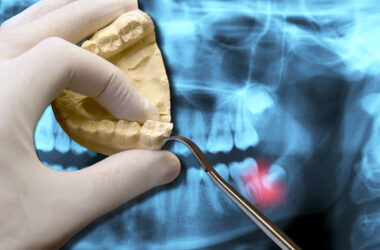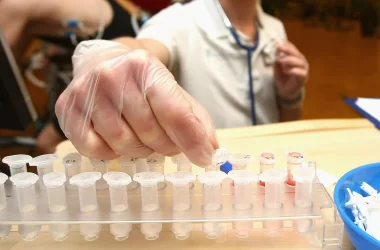Attention Deficit Hyperactivity Disorder (ADHD) is one of the most common mental health challenges in children and adults. Those with ADHD often have difficulty focusing on tasks, managing emotions, and controlling impulses. As a result, many people turn to pharmaceutical treatments like Adderall to address these issues. However, there are also many alternatives to Adderall that do not involve taking medication. These non-pharmaceutical treatments can be just as effective in helping those with ADHD manage their symptoms without the potential risks associated with stimulant medications like Adderall.
The key to successfully managing ADHD is finding what works best for each individual. This article will explore some of the most popular non-pharmaceutical Adderall alternatives for treating ADHD, including lifestyle modifications, psychotherapy, complementary medicine approaches, and natural supplements.
Understanding ADHD Symptoms
Before exploring treatment options for ADHD it is important to understand what this condition looks like so you can properly identify when someone may need help managing their symptoms. The primary signs of ADHD include inattentiveness (trouble paying attention), impulsivity (acting before thinking), restlessness (constantly moving or fidgeting), disorganization (trouble keeping things organized), poor time management skills (difficulty staying on schedule), lack of effort/persistence or motivation (sometimes seeming bored or apathetic). It’s important to note that some of these behaviours may occur from time to time in everyone; however, if they become persistent and interfere with daily activities then it could indicate an underlying issue such as ADHD.
Lifestyle Modifications for Managing Attention Deficit Hyperactivity Disorder
Lifestyle modifications can be an effective way to manage the symptoms of Attention Deficit Hyperactivity Disorder without having to use medications like Adderall or other stimulants. Examples of lifestyle changes include getting regular exercise, eating a balanced diet rich in whole foods and low in processed items and added sugars, engaging in relaxation techniques such as yoga or meditation, avoiding excessive amounts of caffeine, limiting screen time exposure by setting boundaries around technology usage at home and at school/work, getting adequate sleep each night (ideally 7-9 hours per night depending on age), creating structure through routines and schedules that provide consistent expectations throughout the day/week/month/year etc., minimizing distractions while working or studying such as noise levels within your environment etc., breaking down complex tasks into smaller more manageable steps etc. All of these strategies can help reduce hyperactivity levels as well as improve focus making them ideal Adderall alternatives for those struggling with Attention Deficit Hyperactivity Disorder.

Psychotherapy treatments for attention deficit hyperactivity disorder
Cognitive behavioural therapy is a form of psychotherapy often used to treat attention deficit hyperactivity disorder. This type of therapy helps people to challenge negative thought patterns that often lead to the impulsive behaviour associated with the condition, while also teaching more constructive ways of approaching challenging situations. Cognitive Behavioural Therapy focuses heavily on problem-solving skills so that people with ADHD can learn how best to manage their emotions independently rather than relying solely on external reinforcements from parents, teachers etc. In addition, CBT has been found to be successful in reducing stress levels, which helps to improve overall functioning related to attention regulation as well as impulse control, making it an excellent Adderall alternative for managing Attention Deficit Hyperactivity Disorder symptoms without the need for medication interventions such as Adderall or Ritalin etc.
Complementary medicine approaches to managing attention deficit hyperactivity disorder
Complementary medicine refers to additional therapies used in addition to conventional medical care that aim to improve overall health outcomes. Some examples include nutritional counselling/meal planning services, massage therapy/acupuncture sessions, etc., all of which have been shown to be beneficial in improving various aspects associated with this condition, such as emotional regulation/impulse control, etc. In addition, dietary supplements such as omega 3 fatty acids/herbs such as ginkgo biloba – both known for promoting better cognitive function – can also be considered as Adderall alternatives depending on each individual’s needs/preferences since they do not involve ingesting any drugs but still offer therapeutic benefits similar in nature compared to pills as Adderall would provide if taken medically instead.
Natural supplements for managing attention deficit hyperactivity disorder
Natural supplements include over-the-counter vitamins/minerals designed specifically to target certain areas related to the physical/mental health spectrum including boosting energy levels naturally without resorting to the intake of pharmaceuticals ei: as caffeinated beverages. Common natural supplements recommended to people diagnosed with ADHD include zinc, magnesium, ashwagandha, choline, melatonin, bacopa monnieri and others. Many of these ingredients mentioned above contain active compounds called nootropics that support brain function, optimising memory and learning abilities greatly. Taking specific combination compounds found in a certified supplement product might surprise how quickly positive effects start to manifest in the body and mind, especially those looking for inexpensive yet powerful Adderall alternatives.

What to do if you think you have addictive tendencies?
Although many of the complementary medicine approaches discussed earlier offer helpful supportive solutions for dealing with ADHD, it’s important to remember that they never replace the advice of a personal doctor should questions arise regarding dosages, side effects or anything else potentially concerning. Furthermore, although natural supplements are another popular choice to treat attention deficit disorder, seek professional advice if anyone is experiencing addictive tendencies due to heavy reliance on prescription drugs and self-medicating. Seeking proper help is the first step, tackling deeper-rooted issues leads to healthier long-term outcomes all around, helping to say goodbye to dreaded addiction problems once good!
Conclusion
The number of available options out there for dealing with ADHD, the overwhelming majority of which are non-pharmaceutical based, adds layers of complexity to the selection process of deciding right for a particular person’s situation. But understanding common choices provides starting point work off begin narrowing the field until a satisfactory resolution is achieved addressing concerns adequately safe manner possible utilising given resources available whether lifestyle modifications, psychotherapy, complementary medicine approaches natural supplements whatever finally gets chosen should be done with confidence knowing best interest providing quality results patient coming terms improved wellbeing desired outcomes finally reached!





